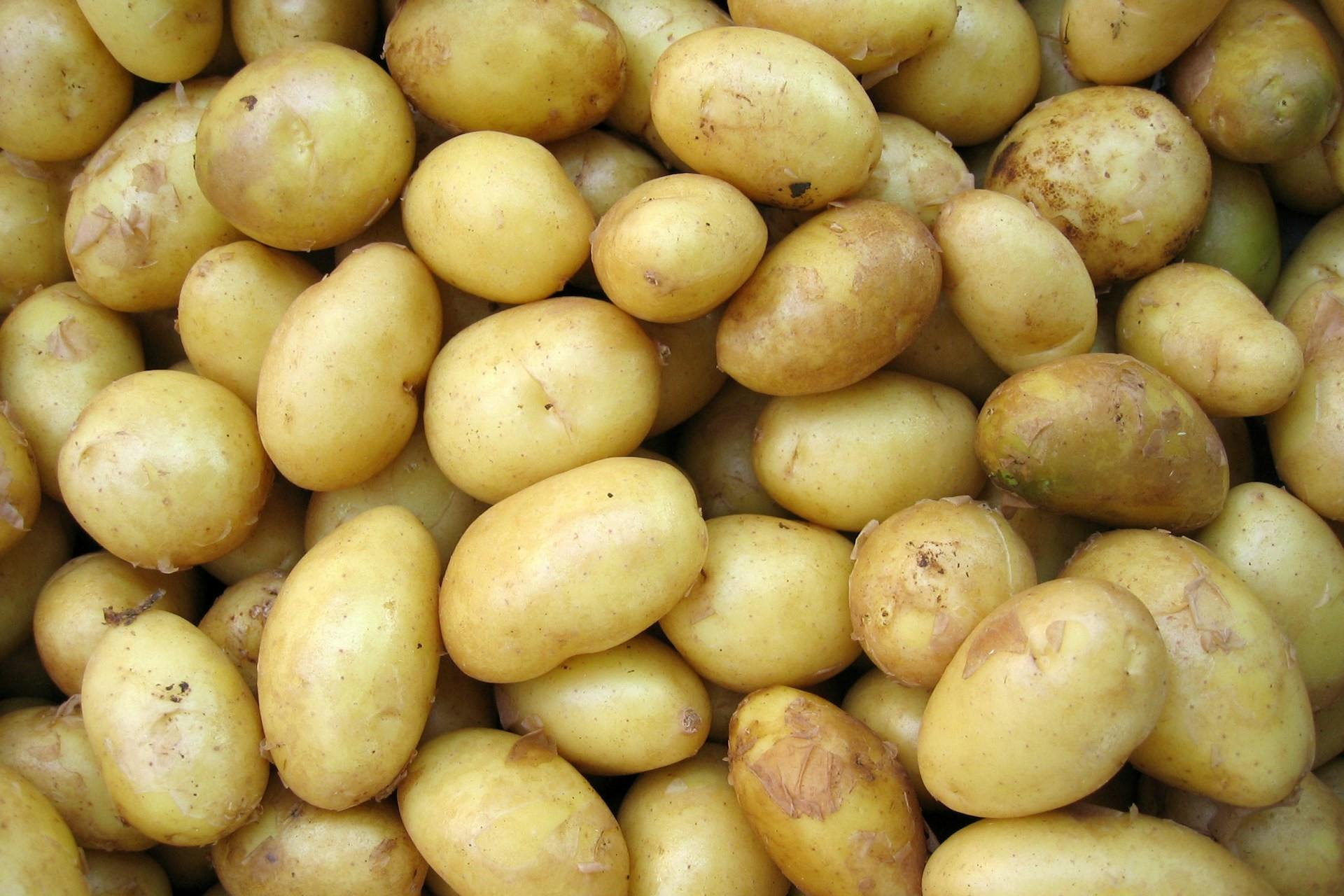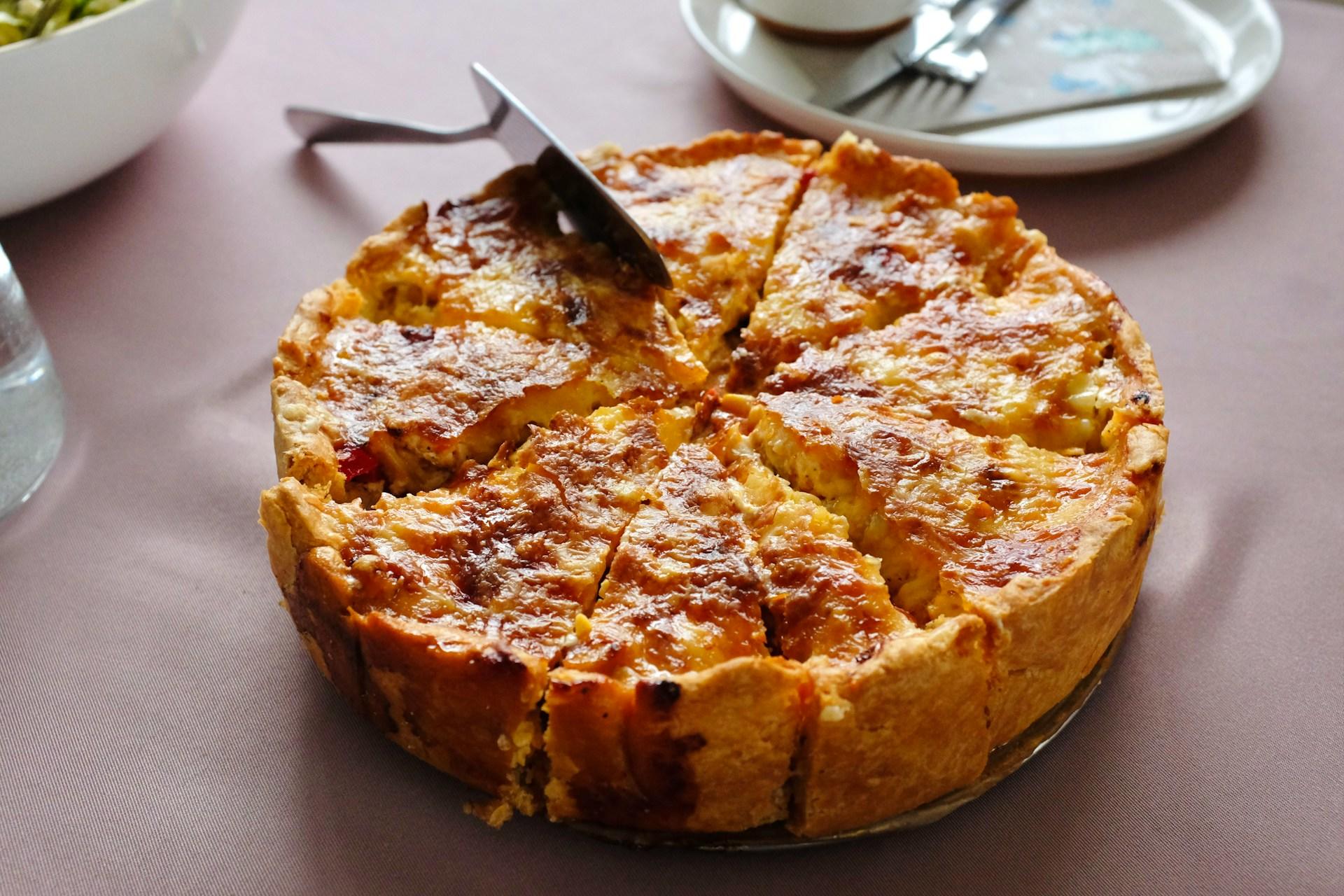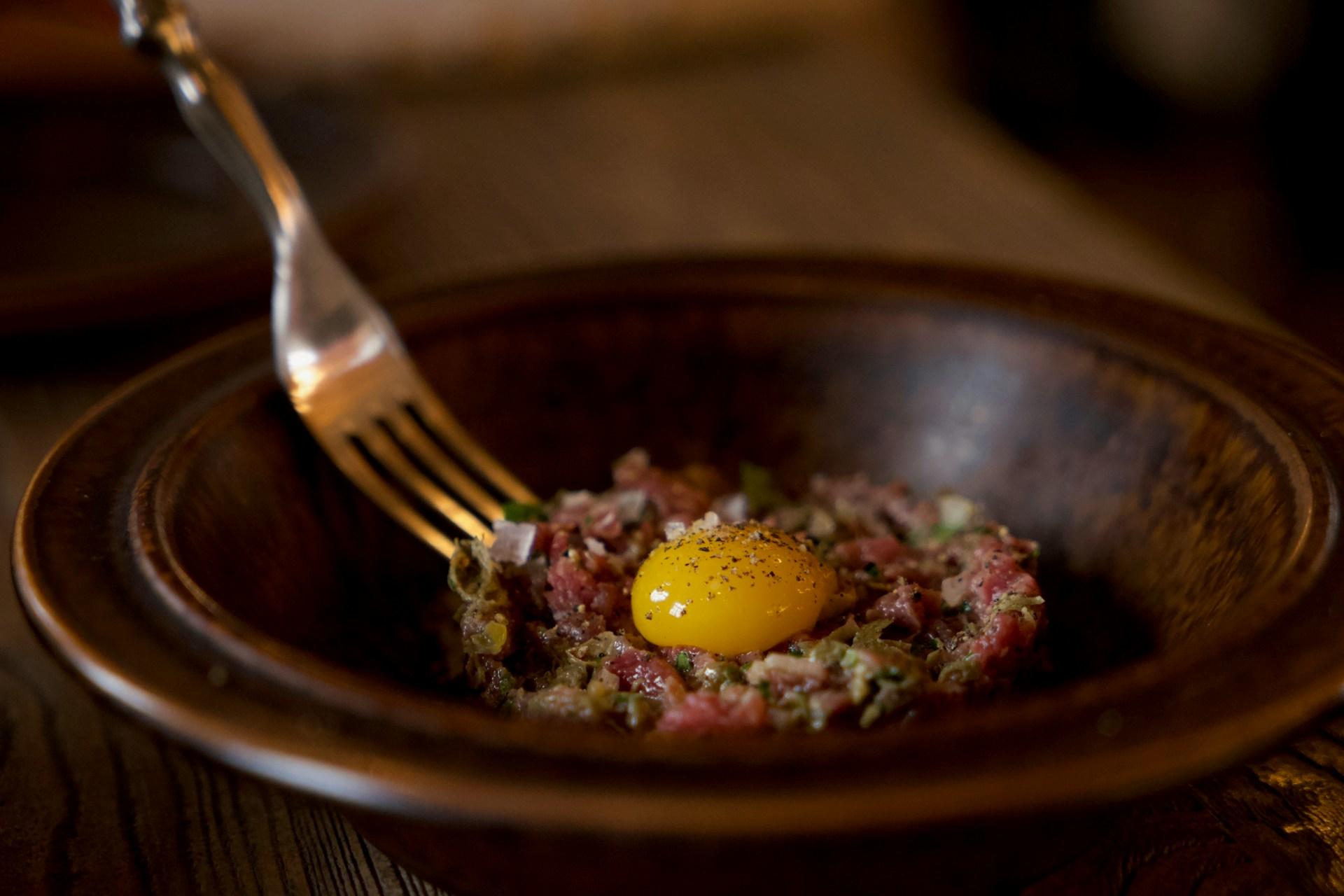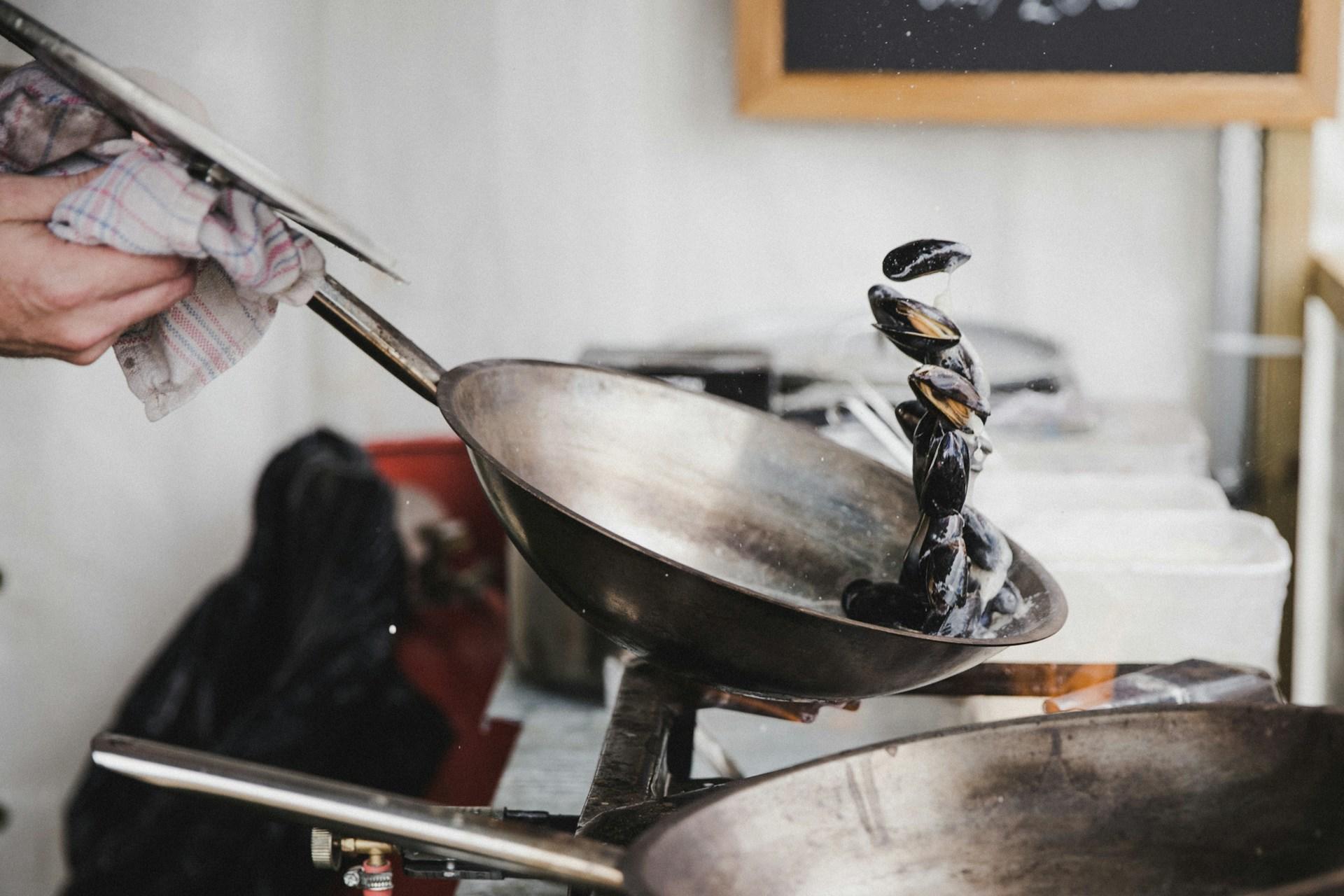French cuisine, renowned worldwide for its elegance, diversity, and delectable flavors, is a culinary tradition deeply rooted in time-honored recipes passed down through generations. Its iconic dishes are not just food, but a cultural heritage that embodies the essence of France.
Cuisine in France is a way of life, and UNESCO has recognised the gastronomic French meal as an intangible cultural heritage.
French dishes, whether they're eaten in Paris or a quaint French countryside village, evoke a feeling of nostalgia, comfort, and joy.
In this article, we'll explore some of the finest and most beloved French dishes. However, we understand that everyone has their own favorite French dish, so we invite you to share yours in the comments below.

Dauphinoise Potatoes
This is a classic French dish, and it's a great one for aspiring chefs or anybody just looking to make some French food at home.
Like other European dishes to feature potatoes, this one is relatively modern. After all, potatoes weren't widely eaten in France until the late 18th century.

Dauphinoise potatoes are a creamy and comforting recipe that quickly became a family favourite. It comes from the Dauphiné region, where potatoes were combined with cream or milk and often garlic, bay leaves, or broth for flavour.
This dish is simple to make, but it's important to choose the right potatoes. Generally, King Edward or Maris Piper potatoes are preferred. The potatoes are thinly sliced and cooked in an oven with butter and seasoning.
If you're serving dauphinoise potatoes as a side dish, it pairs beautifully with meat or chicken.
Pot Au Feu
This traditional French dish is another classic. As a meal, a pot au feu typically includes beef simmered slowly with onions, carrots, leeks, turnips, and celeriac.
By slow cooking the ingredients, their rich flavours create a savoury soup that's served as a starter. The remaining broth is often used to moisten the meat for the main course.
This is a classic recipe that started out as an affordable meal for families with the tougher cuts of beef that required long cooking times.
Adding garlic, bay leaves, and bone marrow enhances the dish's flavour, making it perfect for cold days in French homes or restaurants.
Coq Au Vin
Coq au vin is chicken braised in wine and probably one of the most famous French recipes. The dish originated in Bourgogne (or Burgundy) and later spread across France, with each region adding its own twist. Some legends have it that the coq au vin originated back to the time of Julius Caesar.
To make coq au vin, you have to cook chicken with garlic, onions, mushrooms, carrots, and herbs. Lardons or duck fat can be used to add richness, and a good-quality wine (typically red) enhances the flavour.
However, in the Alsace region, they often cook the chicken in a white Riesling.
For most variations of coq au vin, this dish is popular in the winter, especially when served with warm crusty bread or buttery potatoes.
Quiche Lorraine
Many French dishes get their names from how they're cooked or where they're traditionally made. The quiche Lorraine is named after the Lorraine region of France.

This classic dish is popular worldwide because of its satisfying blend of pastry, cream, eggs, and lardons.
Quiche itself is a versatile dish with many different flavours and ways to be made, but the quiche lorraine is a classic.
This is a great dish for casual lunch or dinner that can easily be made at home.
It's great, either hot or cold, and is a fine example of French cuisine, especially when served with a glass of white wine.
Steak Tartare
For some people, steak tartare is an adventurous choice. Although this dish is today made using raw beef, it was originally made with horse meat.

The modern recipe calls for the finest cuts of beef, which are fresh and safe to eat. The meat is chopped finely and served with raw egg yolk, capers, and onions.
Steak tartare is a simple dish that lends itself to customisation. Chefs and home cooks can adjust the seasoning to their preferences, and it's certainly worth exploring if you're interested in trying traditional French food.

Cassoulet
This dish is from southern France and is a slow-cooked combination of duck or meat with white beans, sausage, and aromatic herbs.
Like other French recipes, this one has regional variations, with Castelnaudary being considered the original region.
A cassoulet is another hearty winter dish. Like many French dishes, it's great with wine, particularly red wine.
It's a classic example of how French cuisine can turn simple ingredients into something extraordinary.
Beef Bourguignon
Beef bourguignon is a famous French stew whose name comes from the Bourgogne region. It's similar to a pot roast and involves marinating beef in wine. As it's from the Bourgogne (Burgundy) region, it's recommended that you prepare it with its namesake wine, too!
After marinating the beef, the dish is slowly cooked with onions, mushrooms, carrots, and herbs. Some versions include pig's feet to increase the richness of the dish.
This dish's quality is due to its ingredients. A good beef bourguignon is made with high-quality wine, fresh produce, and tender meat.
This meal is emblematic of French culinary tradition and is served with vegetables, potatoes, or pasta.
Bouillabaisse
Bouillabaisse is a soup from the sunny shores of France's Provence region. It is a seafood dish that includes fresh fish, shellfish, and potatoes in a garlicky broth.
Bouillabaisse is often served with crispy croutons or rouile (a spiced condiment).
The dish came about as fishermen created it to use unsellable fish, but Bouillabaisse is now a staple of French restaurants, particularly in coastal regions.
Mussels
Mussels or “moules” in French is a quintessential summer dish across France's northern coast. As they're often served with fries, “moules-frites” is a classic pairing and is popular in both France and Belgium.

It comes with a sauce made from white wine, shallots, butter, and parsley, originating in the Charentes region.
Mussels are easy to make and versatile. You can serve them with a creamy sauce or a lighter broth, adapting the dish to fit your tastes.
As always, pair it with a good wine, typically white wine, for a perfect meal by the sea.
Bourgogne Snails
The French don't appreciate "fast food", and this is the quintessential French dish. Known as "escargots" in the French language, this is probably the most famous French delicacy, but not one that's eaten as often as stereotypes would have you believe.
Snails are popular during the holidays. They're baked with garlic, parsley, and butter. The snails are served in their shells, and special utensils are used to eat them properly.
For many, snails seem like an unusual dish. Still, snails are also eaten in neighbouring Italy and Spain, with regional variations.
If you're curious about French cuisine, you have to try snails. The sauce is exquisite, and a piece of baguette is perfect for mopping it up.
What Makes French Cuisine So Special?
French cuisine offers something for everyone, from hearty stews to delicate pastry. The dishes represent the different regions of France, and each recipe is made with creativity and care.
These dishes are great for a comforting meal at home but they don't look out of place in fancy restaurants in Paris, either.
The country's culinary traditions are more than just dishes; they reflect the country's culture and appreciation of eating, which is always about more than just the food itself.
From the rolling vineyards of Burgundy to the bustling streets of Paris, French cuisine is shaped by regional flavours, seasonal ingredients, and local traditions.
Every dish uses fresh produce, fine local wines, and meticulous preparation techniques to elevate it to something greater than the sum of its parts.
French cuisine isn't just about the food; it's about savouring each bite and sharing the experience of a meal with loved ones.
Whether you want to learn how to make creamy potato gratin or a rich chocolate dessert, discover the joy of creating and eating French food.
Why not learn with a private cooking tutor to get better at cooking French food?
On the Superprof website, you can find cooking tutors across New Zealand and worldwide. If you can't find any local tutors, why not learn from a real French chef and start mastering how to make some of these recipes today?
Most tutors offer the first session for free, so you can try a few out before choosing the one that's right for you and what you want to learn.
Summarise with AI:















